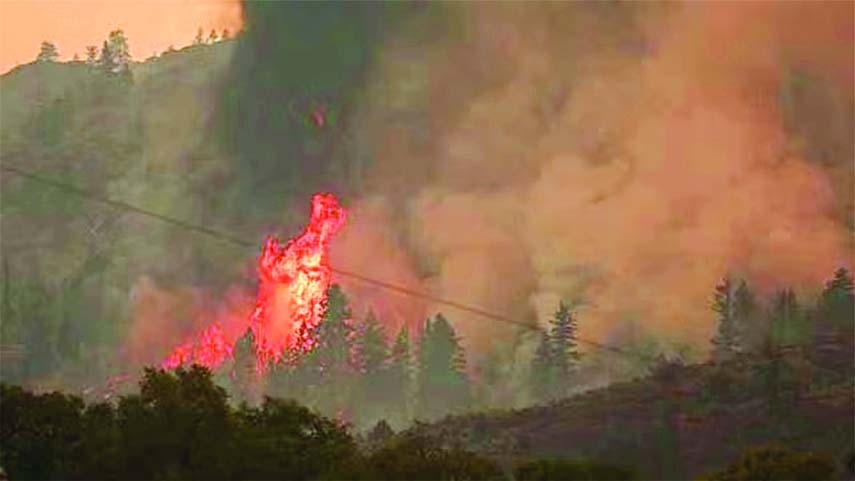Canadian firefighters race flames to evacuate Yellowknife

Canadian firefighters are racing against advancing flames on Friday to evacuate all residents from the remote northern city of Yellowknife, with unfavourable winds threatening to complicate one of the biggest rescue efforts of the fire season.
In Yellowknife, the capital city of Northwest Territories, fire crews and water bombers are trying to save the city of about 20,000 people from a massive wildfire that has forced an evacuation order for the entire population.
Some 10 evacuation planes ferried about 1,500 people out of the city on Thursday and about 22 flights are due out on Friday, while scores of people left via road, authorities said.
The massive fire to the northwest of Yellowknife only advanced by around one kilometre on Thursday, officials said, held back by winds. It is now about 15 km away from the city and
"Those are winds that will trend both of those fires in directions that we don't want," he added. The expanse of fire risk and disruption to life and land underscores the severity of the worst-on-record Canadian wildfire season this year, with more than 1,000 active fires burning across the country, including 265 in the Northwest Territories.
Experts say climate change has exacerbated the wildfire problem. Drought has been a contributing factor to the number and intensity of this year's fires, officials say, with high temperatures exacerbating the situation. Much of Canada has seen abnormally dry conditions. Around 65% of the Northwest Territories' 46,000 population look set to be evacuated.
As the evacuation effort in Yellowknife makes progress, the focus is shifting to the western province of British Columbia which is under the threat of dry lightning, igniting more blazes in its sun-baked forests. The City of West Kelowna and the Westbank First Nation declared a local state of emergency on Thursday, with about 5,500 properties on evacuation alert.
Officials in British Columbia, which has suffered unusually intense blazes this year, warned residents to prepare for extreme fire conditions. "The hot dry temperatures, mixed with forecasted dry lightning has increased the risk of wildfires throughout much of British Columbia," provincial Emergency Management Minister Bowinn Ma told a briefing on Thursday.
The Pacific province has warned that the next 24 to 48 hours could be the most challenging from a fire perspective this year.
